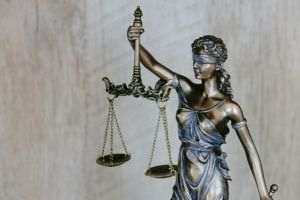The first quarter of the 21st century brought great transformations and challenges for humanity. Rapid technological progress, climate change, geopolitical tensions, and social and cultural revolutions have created a context in which collective fears evolve and amplify. Two days ago, the issue of a new world war was put on the back burner, from the highest level. This is one of the fears, war, but they are many.
• Geopolitical tensions and war
Armed conflicts and geopolitical tensions continue to represent a major source of anxiety in the 21st century. Although the number of interstate conflicts has decreased compared to the last century, civil wars, terrorism, and tensions between great powers (such as the US, China, and Russia) continue to generate global concerns. The proliferation of nuclear weapons and the development of new types of weapons, such as hypersonic or cybernetic ones, amplifies the fear of a major conflict, which could have catastrophic consequences for humanity. The wars in Ukraine and Gaza are an immeasurably palpable threat to large areas of the globe, and the statements of the great leaders are by no means meant to reassure.
• Climate changes and environmental degradation
One of humanity's biggest fears in the 21st century is related to climate change and its impact on the environment. Rising global temperatures, melting ice caps, the frequency and intensity of extreme weather events and rising sea levels threaten the lives and livelihoods of people around the world. Natural disasters such as forest fires, hurricanes and droughts are becoming more common, generating panic and uncertainty. In addition, environmental degradation, including deforestation, pollution and loss of biodiversity, amplifies these fears. International efforts, such as the Paris Agreement, are trying to alleviate these problems, but many experts warn that current actions are insufficient.
• Technology and Artificial Intelligence
The rapid advancement of technology, especially artificial intelligence (AI), is another major source of concern. Although the technology promises to bring significant benefits to various fields such as health, education and transportation, there are concerns about the impact AI may have on jobs, privacy and security. Another area of concern is the possibility of the development of superintelligent AI, which could exceed human capabilities and act in unpredictable or even dangerous ways. There are also fears about the use of technology for mass surveillance, information manipulation and the amplification of social inequalities.
• Pandemics and public health crises
The COVID-19 pandemic has highlighted how vulnerable humanity is to infectious diseases. The fear of new pandemics is now much more present, as globalization, urbanization and environmental changes increase the risk of the emergence and rapid spread of new pathogens. In addition, there are concerns about antimicrobial resistance, which could make common infections deadly again, and unequal access to health care, which could exacerbate global inequalities.
• Economic and social inequality
Economic and social disparities represent another major concern in the 21st century. Income inequalities, limited access to education and health for certain groups and the lack of economic opportunities for young people and people from marginalized communities generate tensions and instability. In addition, globalization and automation have led to the loss of jobs in certain sectors, which has amplified the sense of economic insecurity for many people. These inequalities are often associated with the rise of populist movements and political polarization.
• Erosion of democracy and human rights
In many parts of the world, democracy and human rights are under pressure. The rise of authoritarian regimes, the curtailment of freedom of expression, attacks on the free press and the erosion of democratic norms have generated major concerns about the future of democratic governance.
Against the background of these developments, many fear that fundamental rights and freedoms, hard won during the 20th century, could be lost or undermined.
The 21st century brings with it a series of complex and interconnected challenges that feed humanity's fears. Climate change, technological progress, geopolitical tensions, pandemics, inequality and the erosion of democracy are just a few of the major concerns shaping our collective future. The response to these challenges will require global cooperation, innovation and a strong commitment to fundamental human values.


























































